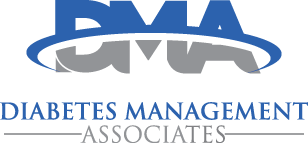We all want to know what’s in our food, how it is produced, and where it comes from. But food companies are often not required to give us this information and we often don’t dig deeper to seek it. The array of labels on some foods can be overwhelming. It is often difficult to differentiate between food produced by sustainable farmers using humane practices, and corporate agribusinesses greenwashing their products.
In this country, the U.S. Department of Agriculture (USDA) inspection seal means your food meets certain quality standards and has been inspected by USDA employees or company employees under USDA supervision to rank quality. A dicey process to say the least.
Some labels that sound good but in reality, can be very negative include:
- Cage-free eggs means birds are not raised in what we envision as a small cage. However, the birds are often raised in a large indoor overcrowded space that is no different than a cage.
- Pasture raised is another term that sounds good but there are no standards to know how much time the animal is actually in the pasture.
- Grass-fed means that an animal’s source of food comes from grass or forage, not from grains such as corn. This is good but we do not know if antibiotics or hormones were used in the animal or what conditions it lived in.
- ‘Raised without antibiotics’ or ‘no antibiotics administered’ means the animal did not receive antibiotics over its lifetime. The many years of large-scale producers feeding animals low dose antibiotics is linked to the spread of antibiotic-resistant bacteria in humans. However, this label does not tell you other conditions about the animal.
- ‘Raised without added hormones’, ‘no hormones administered’ or ‘no synthetic hormones’ all mean the animal received no synthetic hormones. The exception to this is federal regulations do permit use of hormones in beef and dairy cattle to increase milk production and speed up growth. Thanks to many years of activism, labels on milk ‘rBGH-free’ or ‘rBST-free’ indicate that cows did not receive synthetic hormones.
What is bioengineered?
In July 2016, Congress passed a weak federal law for labeling genetically modified food (GMOs) that blocked states from requiring stricter GMO labels. It requires companies to disclose whether their products contain GMO. The label could simply have a QR code that must be scanned to gain more information. GMO crops rely solely on testing by the companies that want to sell these new crops. Look for my ‘What is GMO?’ article for a more in-depth learning.
Make it Simple!
The best label to look for is CERTIFIED ORGANIC. These products must meet specific USDA requirements including:
- Organic crops cannot be grown with synthetic fertilizers, synthetic pesticides or sewage sludge.
- Organic crops cannot be genetically engineered (GMO) or irradiated.
- Animals must eat only organically grown feed and can’t be treated with synthetic hormones or antibiotics.
- Animals must have access to the outdoors, and ruminants (like cows) must have access to pasture.
- Animals cannot be cloned.
Dr. Julie Wood is a Nurse Practitioner and has been serving the Middle Tennessee area for more than 30 years, specializing in adults with obesity, prediabetes and diabetes. Office is located at 401 First Avenue, Mt. Pleasant, TN and statewide with telehealth. Dr. Wood can be reached at 931-325-5560, www.diabetesmgtassociates.com, [email protected].
Articles are meant to be informative and should never replace the advice of your health care provider.
